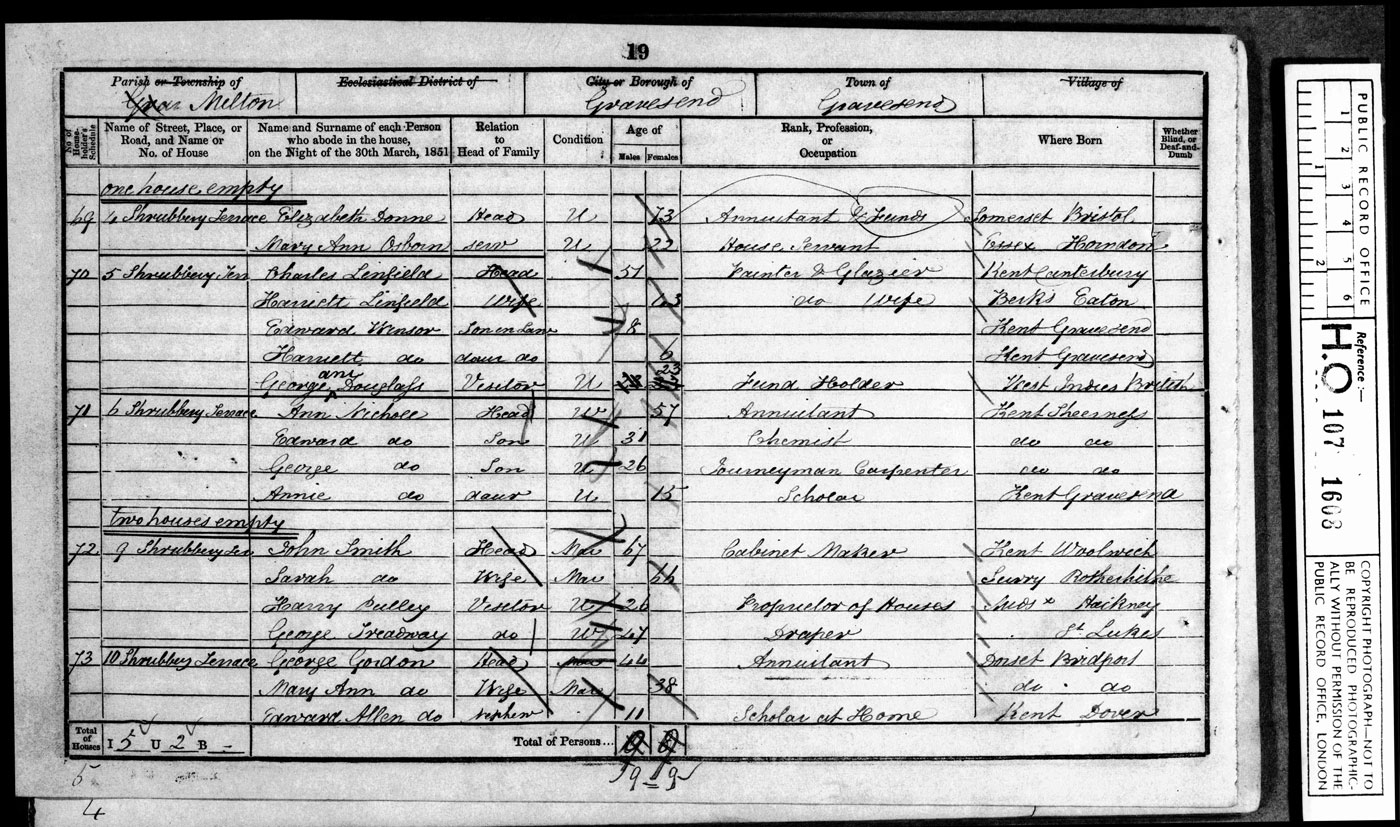Find your Ancestors in the UK Census
Genealogy is one of the fastest developing hobbies in the UK. Millions of people are now researching their family history using tools like CD-ROMs and online databases to build their family trees. One of the main sources of information available to genealogists is the census records which were taken every ten years in England and Wales.
A census is a complete population count for a given area or place taken on a specific date. The 1841 census is considered to be the first modern UK census.
Find your ancestors in the census with the free search available on our website. You will also find some practical information about the UK census and how to use it to research your family history.
Introduction to the Census
Details the Census can provide
The census can provide the full name, exact age, relationship to the head of the household, sex, occupation, parish and county of birth, medical disabilities and employment status of an individual. Later census years have more information, and each year gives a wonderful snapshot of the family. You can visit our Census FAQ page to see what information is available.
Census Enumerators’ Books
Each householder was required to complete a census schedule giving the address of the household, the names, ages, sex, occupations and places of birth of each individual residing in his or her accommodation. From 1851, householders were asked to give more precise details for the birthplaces of each resident, to state their relationship to him or her, marital status and the nature of any disabilities from which they may have suffered.
The enumerator then collected the census schedules, and these were copied into census enumerators’ books. The way these are grouped may mean that a road is split over several folios with other streets in between. In this case the street indexes should list a series of folio references.
Although the original census schedules were destroyed many years ago, the books were kept and eventually moved to the PRO Kew (now known as The National Archives). The books were then filmed in 1970 to prevent the increasing usage from destroying these fragile records.
You may find the odd torn or damaged page, but in general the records have survived in remarkable condition considering the heavy usage they have had.

